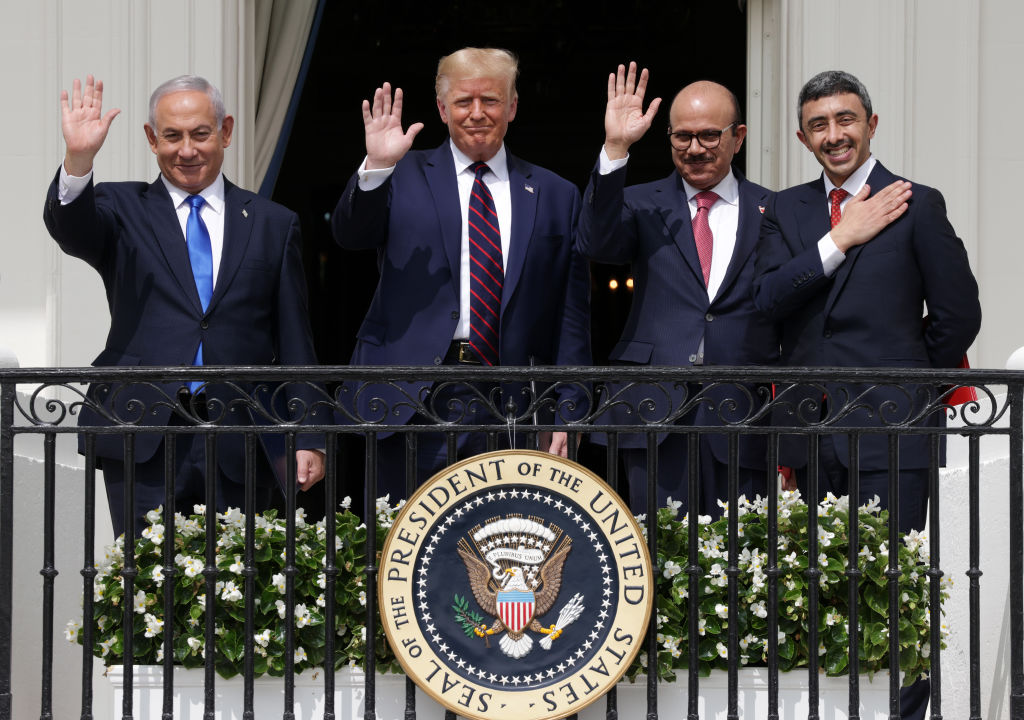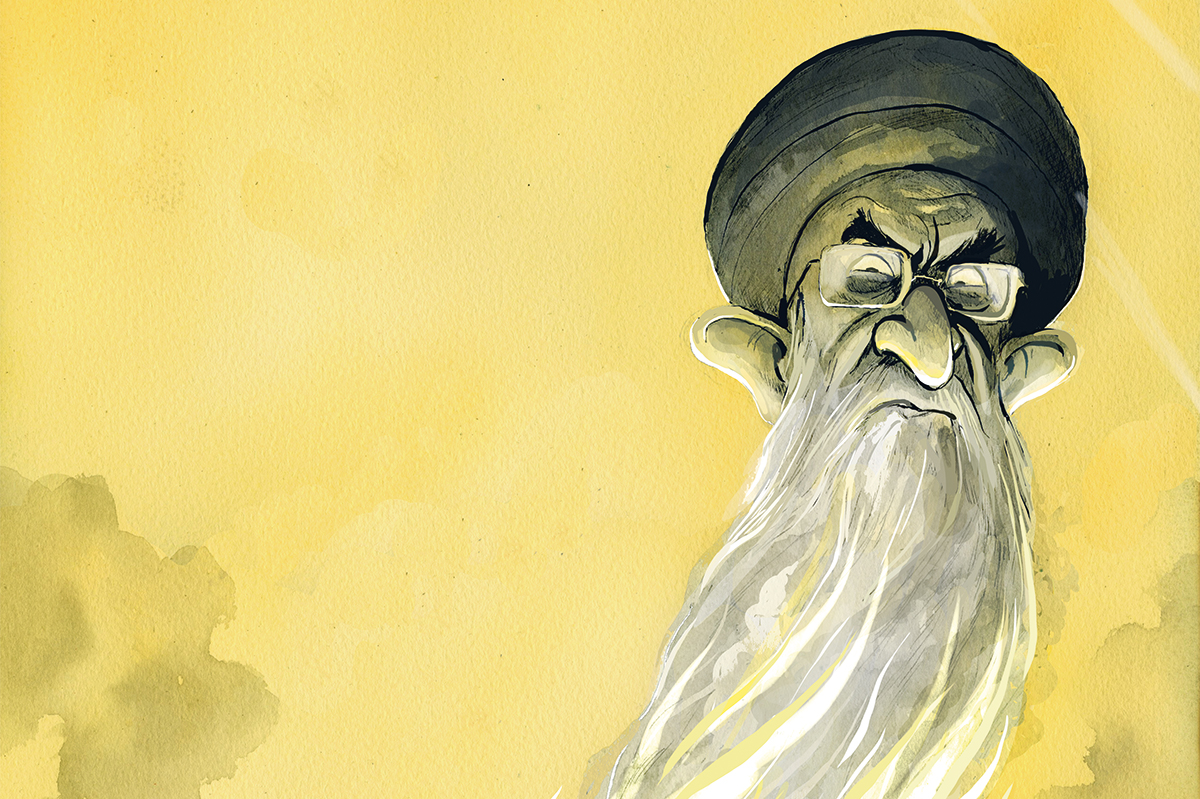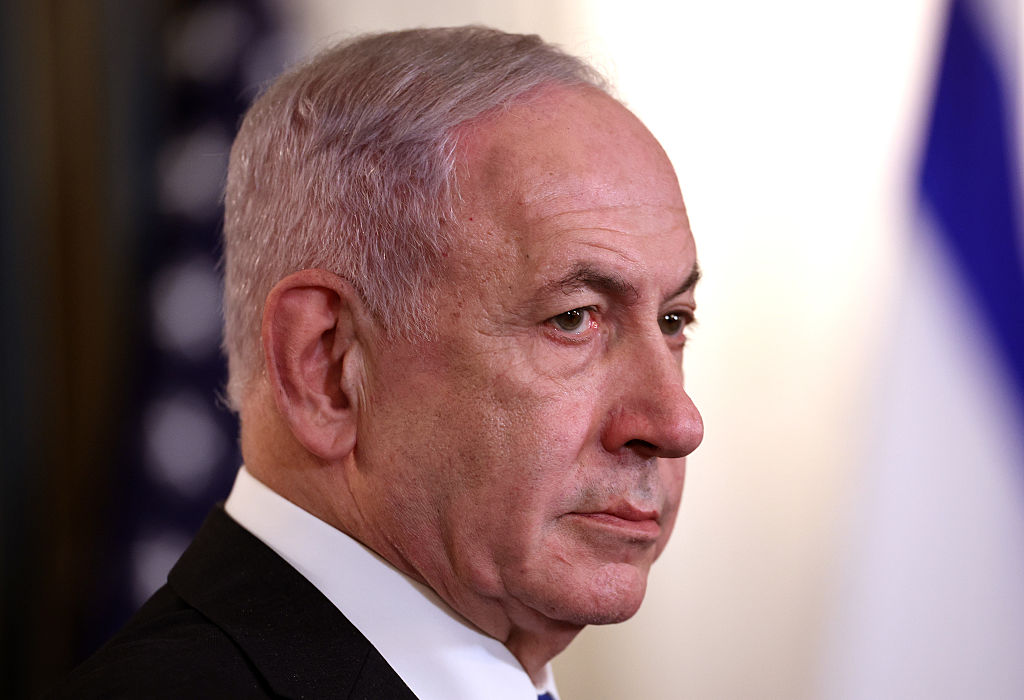Long-time readers of this site may be aware that yours truly has not only applauded the Trump administration’s successful efforts to normalize Israel’s relationship with several Arab countries but has also proposed awarding the Nobel Peace Prize to Jared Kushner, the architect of the Abraham Accords.
There were many reasons for my bullish sentiments regarding the Trump administration’s Middle East policy. First and foremost, as I pointed out, it disrupted the old American paradigm that held that any effort towards rapprochement between Arabs and Israelis hostage to the ultimatums of the radical Palestinian leadership.
Moreover, while the Arab oil states have never deployed military troops to fight in wars against Israel, their economic might, aka oil, provided them with the leverage to force Western governments to comply with Arab demands to impose diplomatic deals on the Jewish state.
So removing Bahrain and other Arab Gulf states, as well as other Arab-Sunni governments, from the anti-Israel coalition, and providing an opportunity to ally them with Jerusalem as part of a strategic axis to contain Iran, helps tilt the balance of power in the Middle East in favor of Israel and the US. It also opens up trade and investment cooperation between Israel, a leading global economic and technological power, and wealthy Arab Gulf states.
But then let’s imagine that Saudi Arabia establishes a diplomatic relationship with Israel, a move that would probably be celebrated as an historic turning point. It would create the basis for a new Middle East, recalling the golden age of partnership between Muslims and Jews in Spain during the Middle Ages.
There would then be a lot of talk about establishing a regional political and economic association a la the European Union (EU) and perhaps a Middle Eastern NATO. Tom Friedman would propose a new Golden Arches Theory of Conflict Prevention, that countries that allow their citizens to watch Netflix don’t go to war against each other.
The problem is that much of this expectation for peace between Arabs and Israelis amounts to nothing more than wishful thinking. The Babylonian Talmud referred to this as “dreaming in Spain,” which was considered to be the edge of the world in 500 CE.
To put it in simple but concrete terms, the term “peace” has a very different meaning in the Middle East than it has in the context of the relationship between France and Germany or the United States and Canada.
This kind of “peace” certainly isn’t based on Immanuel Kant’s notion of “perpetual peace,” permanently established over a certain area, which provided the philosophical foundation for the EU.
Instead, in the Muslim Middle East, what we in the West equate with “peace” amounts to a truce or a armistice, a temporary ceasefire, or “Hudna,” “calm” in Arabic, that is forced on a nation when it finds itself in an inferior strategic position vis-à-vis its enemy and cannot win a war. This could evolve into a longer period of calm. It could even include diplomatic relations and economic ties, though this would only provide the nation with the time it needs to strengthen its power and prepare for the next war.
But Israel’s elites are the products of the modern Western intellectual milieu and a progressive agenda that assumes that peace agreements are the first step on the road towards understanding and friendship between nations, and the fulfillment of a universal project. We’ll all be singing Kumbaya together.
Hence for many members of the Israeli political left the Abraham Accords didn’t have that je ne sais quoi, didn’t fit into their imaginary world in which Israeli and Bahraini women would hold hands to fight against the patriarchal system, Saudi transgenders would fly to Israel to participate in Pride Week, and atheists in Israel and in the UAE would issue a joint statement calling for the separation of religion from state.
On the other side of the Israeli political map, globalism fosters a dream of peace through trade and investment that would override national, tribal and religious differences and turn Israel into a regional economic center.
At the same time, defense experts are drawing the outlines of scenarios under which Israeli and Saudi generals are going to plan strategies to beat Iran on the battlefield.
But in fact, Israel didn’t need — and doesn’t need — cooperation with its Arab neighbors and their mostly third-world economies to turn into a technological superstar. If anything, economic integration in the Middle East would create a political backlash against Israeli “imperialism” and result in thousands of cheap Arab workers flooding into Israel.
Similarly, Israel cannot count on any supposed Arab “ally” to maintain its security. The disastrous military cooperation with the Christian forces in Lebanon in 1982 demonstrated that there are no real alliances in the Middle East, just a series of one-night stands after which you wait for your partner to stab you in the back.
Recall that at some point Israel faced the possibility of the Muslim Brotherhood taking over Egypt, with which it had signed a peace agreement. The regimes in all the Arab countries, including the Gulf states, lack political legitimacy in the eyes of their citizens and any agreement with them only stands as long as those regimes remain in power.
Many Israelis who complain about the “cold peace” with Egypt, should recognize that notwithstanding the peace between Cairo and Ankara, the two countries are fighting a proxy war in Libya. The Saudis have imposed an economic blockade on their friend, Qatar, and are likely to recalibrate its relationship with Iran when they decide that it’s in their interest to do so.
The bottom line is that most of the Arabs continue to regard the Israelis as a foreign entity that stole land from its original inhabitants, the Palestinian Arabs. That their governments are unwilling to go to war with Israel to rectify this injustice reflects pragmatic considerations and not a recognition of Israel as Jewish state that has the right to exist.
This gloomy reality may unnerve many Israelis and their supporters, but then Israel is doing quite well, thank you very much. And most of its citizens regard Paris, Berlin and New York, not Cairo, Damascus and Dubai, as the cultural centers towards which they gravitate.
Don’t expect the conflict between Israelis and Palestinians to end happily, or, as some Israelis fantasize, in a federation or a confederation between these two peoples. More likely, it will end like the civil wars in the former Yugoslavia, with Arabs and Jews separated behind high walls. Have a nice day and hope not to see you again!
The prophet Isaiah may have proclaimed that the people “shall beat their swords into plowshares and learn war no more,” but the Book of Judges provides a more realistic picture. Each of its accounts of a war ends with the following: “And the land had peace for forty years.”
As someone who was raised in Israel and lost many friends during the War of Attrition and the Yom Kippur War, it seems to me that what most Israelis are seeking isn’t a free trade area between Israel and Syria, although that would be nice. They hope to enjoy forty years during which their children will not be killed in a war or terrorist attack. Eighty years would be even better.

























